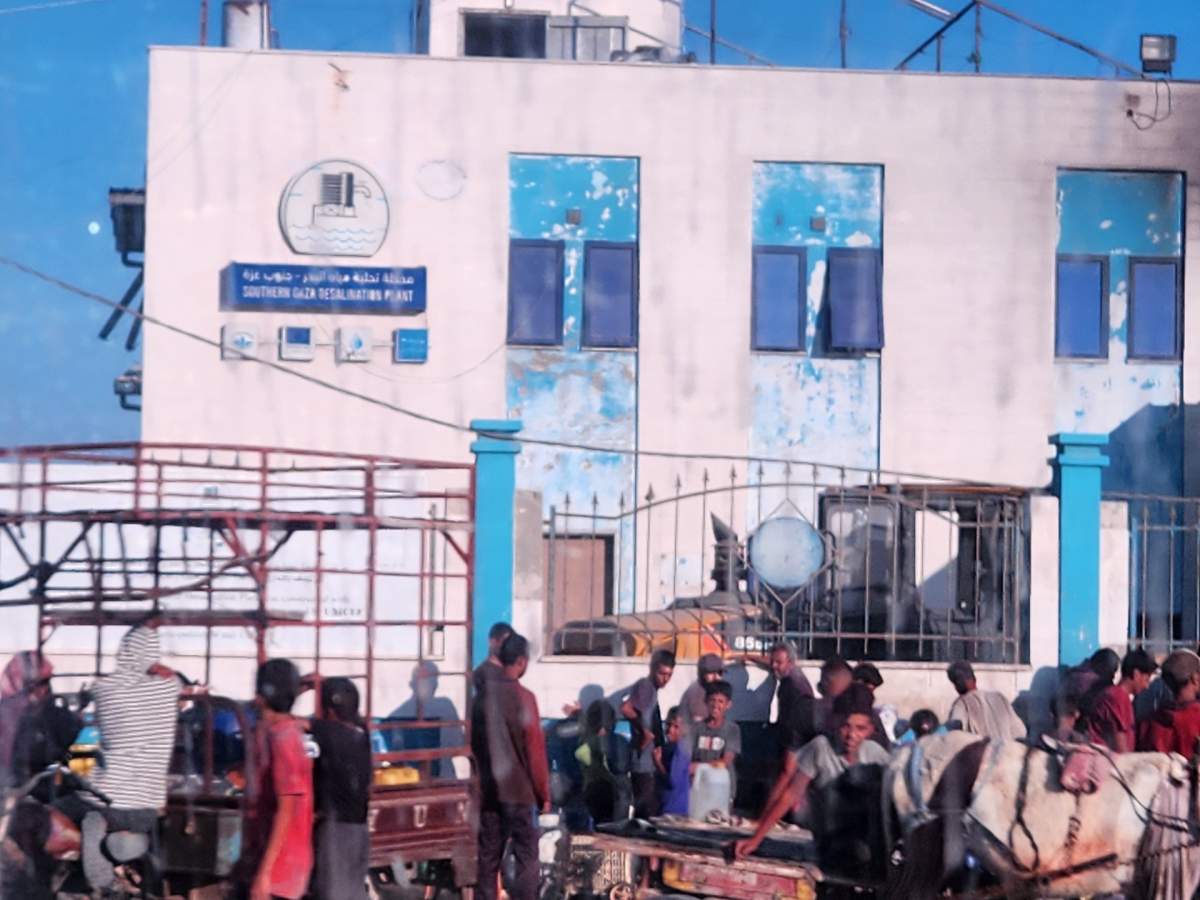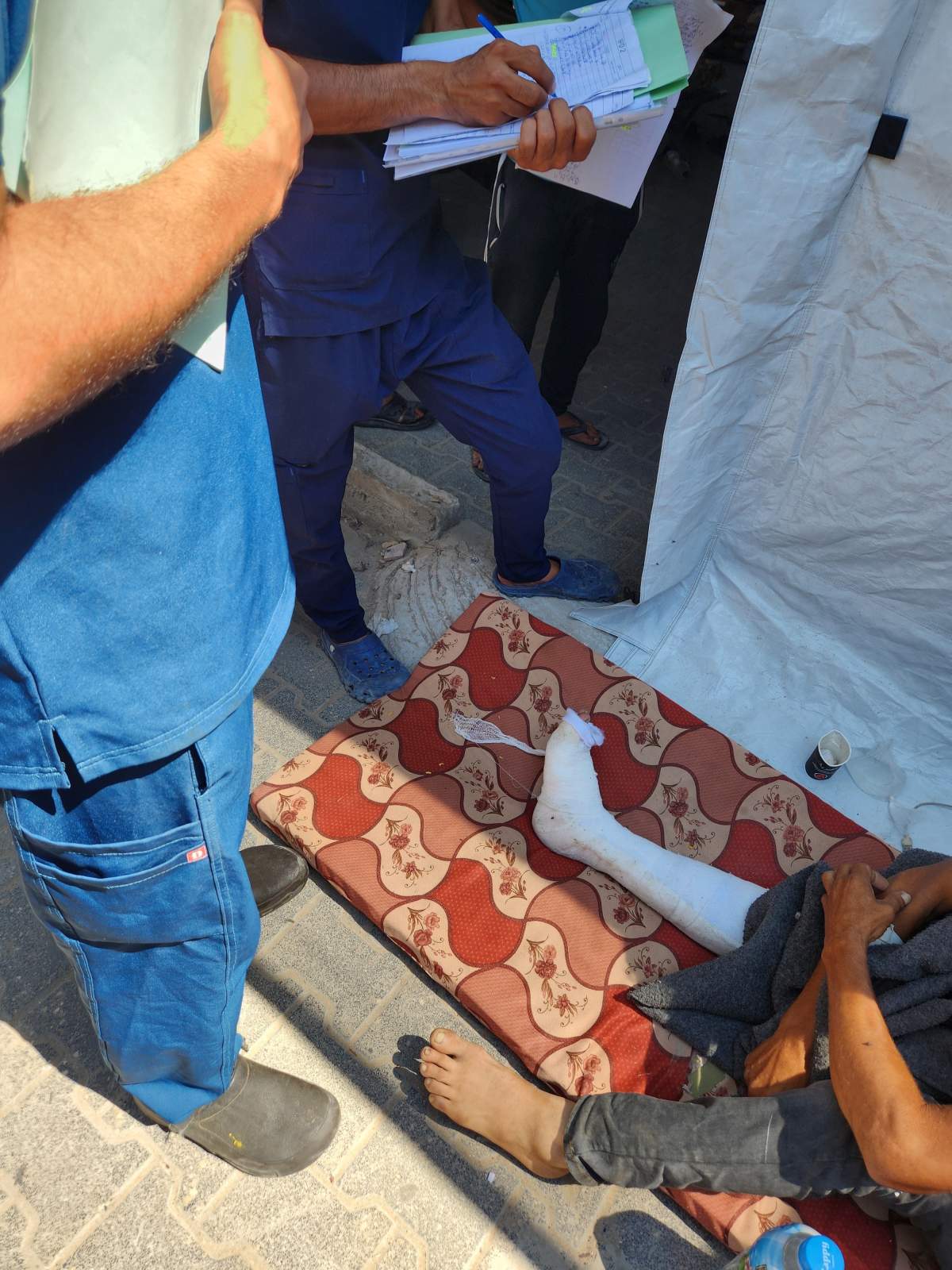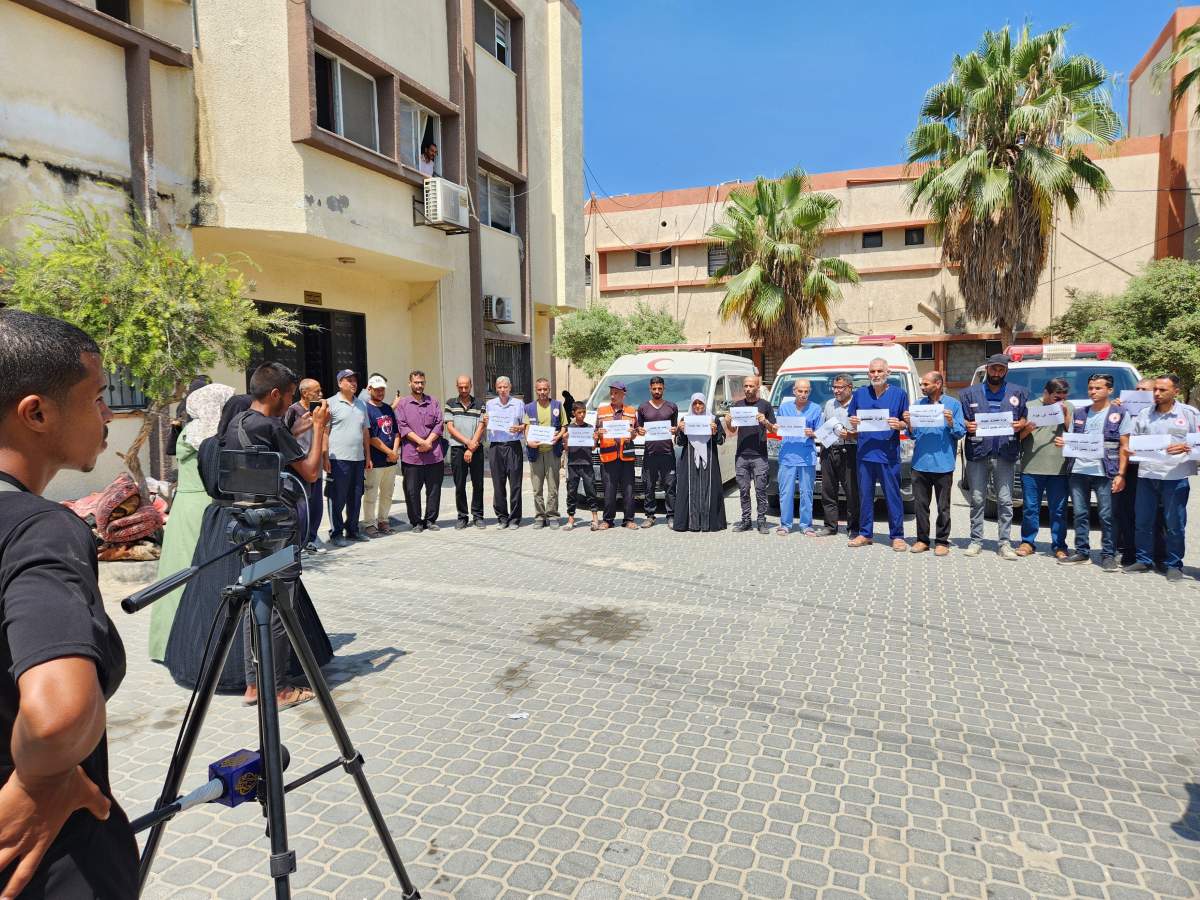An orthopedic surgeon from Saskatchewan, Dr. Deirdre Nunan, who recently returned from an assignment in Gaza, is urging Canada to take stronger action.
“We’ve seen the Canadian government propose to recognize the state of Palestine, but this is not a practical move,” Nunan said.
Canadian Prime Minister Mark Carney affirms Canada’s intent to recognize the State of Palestine at the UN General Assembly later this month and Nunan said her message to Ottawa is clear: recognition alone won’t save lives.
She’s urging a meaningful resumption of aid flow into Gaza and for Canada to implement a two-way arms embargo.
Canada did announce an arms embargo, but a parliamentary report flagged loopholes; Nunan is now calling for those gaps to be closed.
“It’s completely appalling and every time I’ve gone, I’ve thought that we have reached rock bottom… I did not think things would get worse. They were, they got worse… for so many lives that have been lost, for so many people who have been injured in that time of inaction,” Nunan said.
Doctors Without Borders Canada executive director, Sana Bég, labels the situation “unequivocally a genocide,” asserting Israel’s destruction of water infrastructure and blockade has driven civilian suffering.
Nunan captured a photo of a desalination facility in southern Gaza, the functioning of which has been affected by fuel shortages. She said she witnessed children begging for water in hospital hallways.
Deirdre Nunan says she captured this image of the southern Gaza desalination plant on July 3, 2025.
Courtesy: Deirdre Nunan
“At a time when children are begging for water, I think it has to be clear that there is a water shortage of the highest magnitude,” Nunan said.
Bég warns that not a single hospital in Gaza is now fully functional; she said only 18 of 36 still show partial operations. She said Canada needs to act under its international humanitarian law obligations.
“Stop the genocide in Gaza, stop ethnic cleansing and forced displacement. We are calling for an immediate and sustained ceasefire. Lift the siege. Canada needs to play its role and show real leadership in abiding by international humanitarian law and making the same demands,” Bég told Global News in an interview.
Israel strongly opposes the Palestinian state recognition from countries like Canada, saying it could undermine peace efforts and escalate tensions. Israeli officials are reportedly considering the annexation of parts of the West Bank in response to burgeoning international recognition moves.
The Israeli Defense Forces (IDF) says its military operations target Hamas militants, not civilians and seek to protect Israelis from ongoing rocket attacks. The IDF stresses that warnings are issued before strikes and efforts are made to minimize civilian harm.
Nunan has worked in Gaza since 2019, with three assignments since the Oct. 7 Hamas attack and Israel’s response.
During her most recent assignment in Gaza in July of 2025, Nunan describes treating many of her patients at Nasser Hospital in Khan Younis with minimal supplies, little or no anesthetic, limited clean water and frequent power outages.
“There were days when we didn’t have enough fuel to run the generators in the hospital to power the air conditioning. So the surgeons were dripping sweat into the wounds of the patients as they were operating on them,” Nunan said.
Nunan said she saw patients treated in tents and on mats outside hospital buildings, operating rooms running on bottled water and surgical teams working amid heat, power outages and constant airstrikes.
Doctors treating an injured man admitted to a mat on the floor beside a tent on July 25, 2025.
Courtesy: Deirdre Nunan
“Patients were being admitted into tents outside the hospital… we were using bottled water to pour over our hands as we washed them before surgeries,” Nunan said.
Traumatic injuries from missile impacts and shrapnel, to burns and crush wounds, were widespread, often requiring amputations, Nunan recounted.
“A majority of the injuries that we’re seeing were from explosive injuries. So this is missiles shelling largely on people who are at home with their families in their tents,” she said.
Nunan said gunshot wounds were another frequent injury, including among civilians reporting they were attacked while waiting for aid. She said children accounted for at least one-third of her patients, with some as young as six weeks old.
“They are the most severe injuries I’ve seen in my career… it was five worst cases I’ve seen in a year in one day and then the next day would be the same,” Nunan said.
Nunan is bringing her testimony to a public event in Vancouver on Monday, Sept. 8, alongside author Naomi Klein, making clear the eyes of both the crisis zone and Canada are watching what policymakers do next.
Calls to action ‘ignored’
Nunan said on July 20th, 2025, she witnessed medical staff protesting famine conditions, calling on the world to act. Now, weeks later, with formal reports of famine, she stresses international action is needed now.
“When I was walking between hospital buildings in Nasser Hospital, the hospital staff staged a protest. It was coordinated with other health facilities in Gaza… with small signs saying, End the famine and stop starvation and feed the children of Gaza. And they hoped that that would be a call to the world,” she said.
She snapped an image of that protest and later recognized one of the journalists in her photo as Mohammed Salama, who was later killed in the Israeli military’s double-tap strike on Nasser Hospital on Aug. 25. Nunan said her colleague later confirmed it was Salama in her image.
“Sound the alarm on starvation in Gaza” protest by healthcare workers at Nasser Hospital July 20, 2025. Courtesy: Deirdre Nunan.
Courtesy: Deirdre Nunan
The Aug. 25 airstrike first hit the hospital’s top floor, then there was a second strike about 15 minutes later as medics, journalists and rescuers fled to aid the initial victims. The attack, killing at least 20 people, including five journalists, has been condemned internationally as a grave violation of international humanitarian law.
Israel’s Prime Minister Benjamin Netanyahu described the incident as a “tragic mishap.” He emphasized Israel values the work of journalists, medical staff and civilians and mentioned military authorities were conducting a thorough investigation.
Worried for colleagues
Nunan expressed grave concern for her colleague, Dr. Ahmad Mhanna, director of Al Awda Hospital in northern Gaza, who was detained by Israeli forces, reportedly without formal charges, in December of 2023, when Israeli troops stormed the hospital and removed several staff. Most were released but Dr. Mhanna was not.
“One of my colleagues… Dr. Ahmad Mhanna, anesthetist and the medical director of the Al-Awda facility in northern Gaza, which is a partner facility where I worked for years, he has been in prison for many, many months now,” Nunan said.
The Guardian reports troubling allegations that Dr. Mhanna endured harsh treatment, including dehumanizing interrogations and physical and psychological abuse in detention.
According to human rights organizations Human Rights Watch and Amnesty International, these reports echo broader accounts from other detained Gaza healthcare professionals who describe similar mistreatment—including beatings, humiliations, and starvation—often under Israel’s Unlawful Combatants Law, which permits indefinite detention without charge or trial.
Israeli authorities maintain that their detention policy involves reviewing detainees and releasing “those who are not involved in terrorist activity” once cleared.



